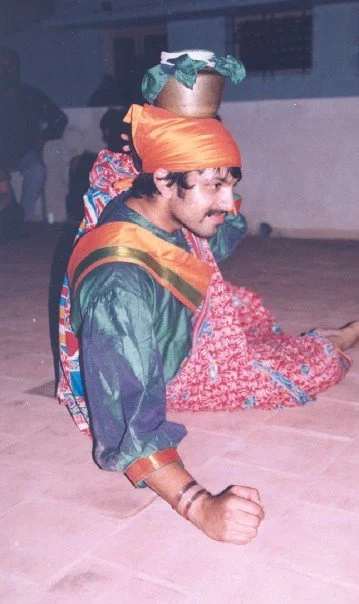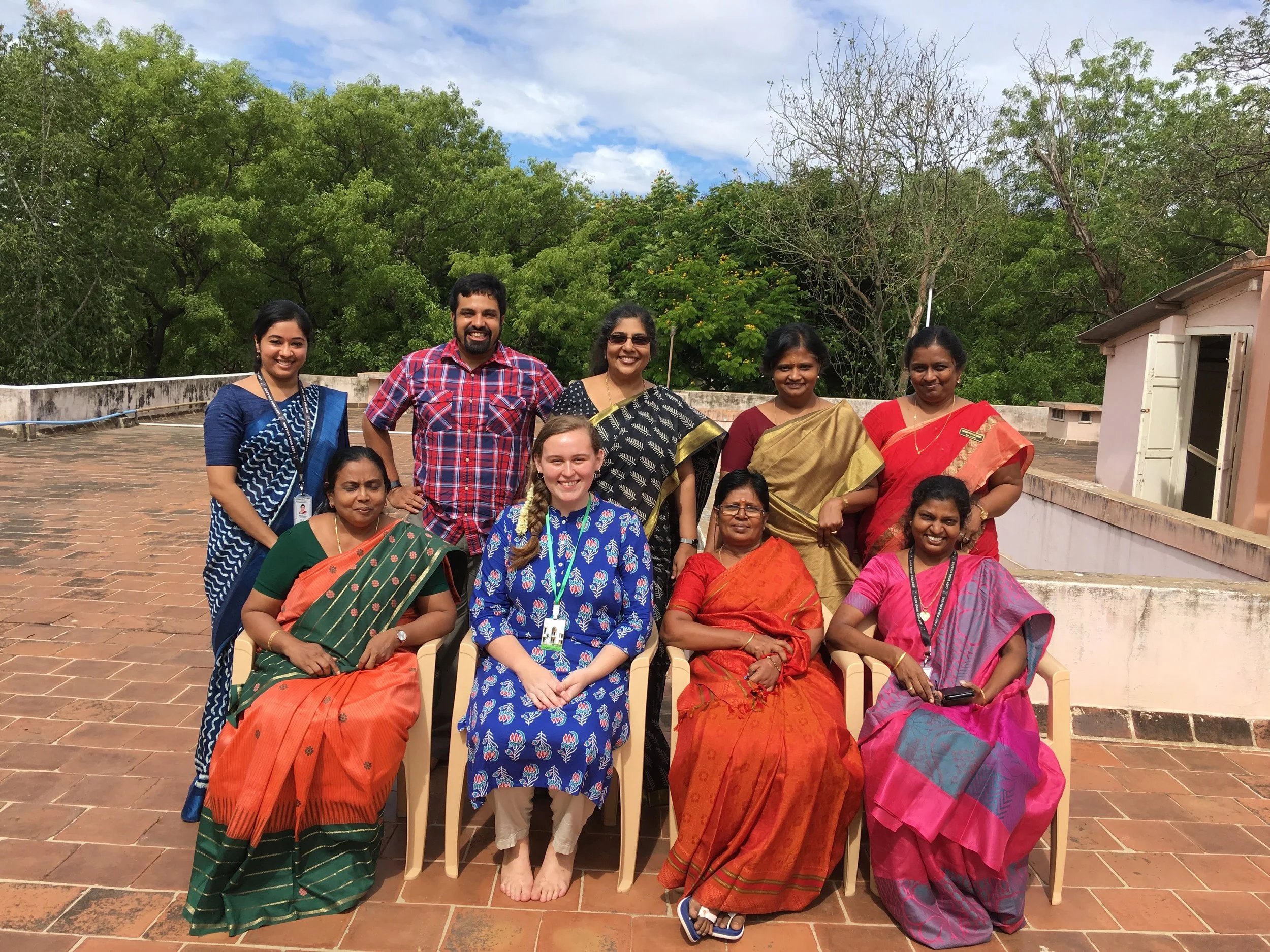The Shansi Effect: A Message from Shansi’s Ted Samuel
November 25, 2025
Dear Shansi Friends and Supporters,
You may know me as Shansi’s Senior Director. But you might know that my connection with Shansi runs deep. In fact, I am a US Citizen because of Oberlin Shansi.
My aunt Grace was a professor at Lady Doak College in Madurai, India in the 1960s when she befriended Peg Leonard, Shansi’s Executive Secretary, and her sister Barbara. Over the next decade, Peg and Barbara became close to the Samuel family. They celebrated my grandparents’ milestone birthdays, met my parents soon after they married, and even used to bring coloring books from Ben Franklin to India in the 1970s for my oldest sister. Barbara and Peg sponsored my aunt to come to the United States, helping her launch a new life and career far away from home. She spent her first weeks in the Western Hemisphere living with Peg on Elm Street, here in Oberlin. Eventually, my aunt Grace sponsored my parents for US citizenship. The rest is now part of family lore.
Grace Samuel with Barbara Leonard circa 1969
Ted’s first Karagattam performance on the University of Wisconsin’s College Year in India Program
Ted and Joe Elder in 2004
Long before I stepped foot in Oberlin, my professional engagement in South Asia was shaped by Shansi. In 2003, I met Joe Elder, Shansi’s first Rep to India in 1951, who convinced me to study abroad in Madurai through the University of Wisconsin. There, I learned Tamil, conducted ethnographic research, and even began a small career as a Karagattam folk dancer. The program inspired me to pursue a Ph.D. in Anthropology and a career in international exchange. Much of the orientation I conduct for new Shansi Fellows is inspired by the rigorous training Joe provided me.
I am a proud example of “The Shansi Effect.” The same is true for my parents, siblings, nieces, and nephews. None of us were participants in Shansi Programs. None of us had even been to Oberlin. Still, Shansi directed our entire trajectory. It gave us the foundation for our American Dream.
“We invite you to contribute to the lasting impact of the Shansi Effect…”
“The Shansi Effect” is profound and generational in scope. Unlike a “ripple effect,” which makes imaginary waves in unknown waters, or a “multiplier effect” that can be coldly charted on graphs, “The Shansi Effect” is simultaneously concrete and deeply personal. Though we are a small nonprofit affiliated with a small liberal arts college in a small town in Ohio, our work changes lives, careers, institutions, communities, and families like mine.
This year, we invite you to join The Shansi Effect campaign to build cross-cultural relationships and strengthen mutual understanding across generations. Gifts from our community help us provide transformative opportunities in the United States and Asia. Please visit our website at www.shansi.org/donate to give online or send a check to Oberlin Shansi, 50 North Professor Street, Oberlin, OH 44074. You can also donate appreciated stock or consider making a Qualified Charitable Distribution (QCD) as part of your IRA Required Minimum Distribution (RMD). Learn more about these tax-advantaged opportunities from our website or by contacting shansi@oberlin.edu.
Over the next two weeks we will share more examples of “The Shansi Effect” through stories from alumni and key collaborators at our partner organizations in Asia. In a time when international and intercultural exchange opportunities face monumental hurdles, we invite you to contribute to the lasting impact of “The Shansi Effect.”
Peg Leonard with the Samuel family circa 1973
Ted with Lady Doak College Visiting Scholar alumni and Shansi Fellow Kate Little in 2019
More than sixty years after my Aunt Grace met Barb and Peg Leonard and twenty years after I met Joe Elder, Shansi continues to shape my life and worldview. I am proud to be a part of an organization with significance that will carry for generations to come.
Sincerely,
A. Ted Samuel, Ph.D.
Senior Director






